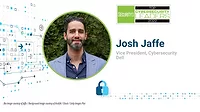Special Report
Making a difference in cybersecurity and intelligence
Teresa Shea, Vice President, Cyber Offense and Defense Experts, Raytheon Intelligence & Space

When you speak to Teresa Shea, you get a sense of how passionate and uplifting she is. That same passion for making a difference has led her to an exceptionally rewarding career.
After obtaining a degree in electrical engineering and meeting her husband at Georgia Tech, Shea says she followed him to the National Security Agency (NSA). While he did not stay very long, Shea served at the agency for 34 years, after discovering how much she enjoyed signals intelligence. “I could see the difference I was making for security, not only for the nation, but also for warfighters on the frontlines. Saving lives really matters to me, so it was an enriching career. I would encourage anyone to consider a role with the Department of Defense or the intelligence community,” she says.
At the NSA, Shea held several key leadership assignments, including as Director of Signals Intelligence, playing a vital role in national security by providing leaders with critical information required to protect and defend, save lives, advance U.S. goals and support the Department of Defense. For her illustrious career, she received several awards — the President’s Distinguished Rank Award from former presidents George W. Bush and Barack Obama, the National Intelligence Distinguished Service Medal, the Central Intelligence Agency’s Donovan Award and the Department of Defense Medal for Distinguished Civilian Service.
And while she has several mementos, trophies and awards from her time at the NSA, what Shea treasures the most is a letter she once received from an army ranger. “He thanked me for the intelligence that saved his life and the lives of many in his platoon in Afghanistan. In the letter, he shared that [intelligence] was the single greatest advantage on the battlefield. I couldn’t be prouder of our team for producing and delivering life-saving intelligence,” she says.
After the NSA, Shea joined In-Q-Tel, a not-for-profit strategic investment firm, to lead its technology investments directed at enhancing the national security of the United States. In 2019, she was recruited into Raytheon for her experience in leveraging cutting-edge technology. Now, as the Vice President of Cyber Offense and Defense Experts (CODEX) for Raytheon Intelligence & Space (RI&S), Shea is focused on both bringing offensive capabilities to the defense sector, and delivering cyber-resilient, advanced capabilities to help Raytheon and the intelligence and defense industries protect the nation’s most valuable assets.
With her wealth of knowledge and passion for developing offensive and defensive capabilities, Shea is leading her CODEX team to develop a capability that enhances internal network cybersecurity defense, combining the tools and techniques from software emulation, vulnerability research and exploitation development. “Our main priority is to develop a real-time, automated solution that identifies an attack, reverse-engineers the malware, determines how to apply and exploit that, and then stops the malicious malware, all while maintaining normal endpoint operations,” Shea explains.
The mission is to serve the U.S., Shea says, and to provide operationally viable solutions to some of the most challenging problems the U.S. faces. “We’re in a race with our adversaries. For us, it’s really about enhancing capabilities for existing infrastructure with an end-to-end systems engineering approach.”
What makes CODEX so unique and well-positioned to deliver active defense, Shea explains, is that the group comprises curious, intelligent, persistent individuals who are trained to think like attackers. “We use that mindset and our knowledge of the offensive side to inform the defensive side and bring cybersecurity to enhance national security.” Shea and her CODEX team are working on further developing individuals and building their talent and resilience, “tailoring the right training to the right individual to understand their capabilities and areas of growth.”
Beyond her work, Shea is also incredibly passionate about championing community engagement and mentorship, and she is involved in several organizations to share her knowledge. She helped spearhead the inaugural Girl Scout Challenge, a national, scenario-based competition that teaches girls about cybersecurity and introduces them to other females in STEM who offer mentorship and can answer questions about the field of cybersecurity.
She is also involved with another Raytheon Technology STEM education program, the National Collegiate Cyber Defense Competition (NCCDC). NCCDC — the nation’s largest competition of its kind — stages a simulated cyberattack against a fictional adversary. The event gives university students from across the country a chance to test their skills, as well as participate in a career fair and compete to win a scholarship to advance their cybersecurity education.
Raytheon, one of the many sponsors of the NCCDC, is actively engaging college students from across the country, getting them excited about technical education and connecting with mentors, she explains. “Every STEM-related business must have a robust outreach, mentorship and education program to really promote the study and careers in STEM.”
In addition, Shea and her team are active supporters of the Alabama School of Cyber Technology and Engineering, a public residential high school preparing students for cybersecurity careers. She also participates in the Amazing Women of the Intelligence Community, which focuses on the development of professional women serving the U.S. national security mission.
Personally, Shea undertakes all of these initiatives with the goal of closing the cyber talent gap and advancing the field of cybersecurity, working with students of all ages to ensure complete exposure. “We want to build the next generation of cybersecurity leaders, especially by encouraging the advancement of women in the field of cybersecurity. Just like all CODEX team members, I want them to achieve great things in the cybersecurity space,” she says.
Mentorship is invaluable for women in cybersecurity and women in the security community, Shea says. In the past year, she has mentored four brilliant women from across the country. Meeting every month for an hour, Shea discusses specific topics like breaking into the field of cybersecurity, communications, succeeding in a male-dominated environment, work-life balance, leadership and negotiation. “I’ve benefitted from numerous mentors. Providing collaboration, advocacy, and helping recruit and retain women in cybersecurity are duties we all have as leaders,” she says.
Looking for a reprint of this article?
From high-res PDFs to custom plaques, order your copy today!







